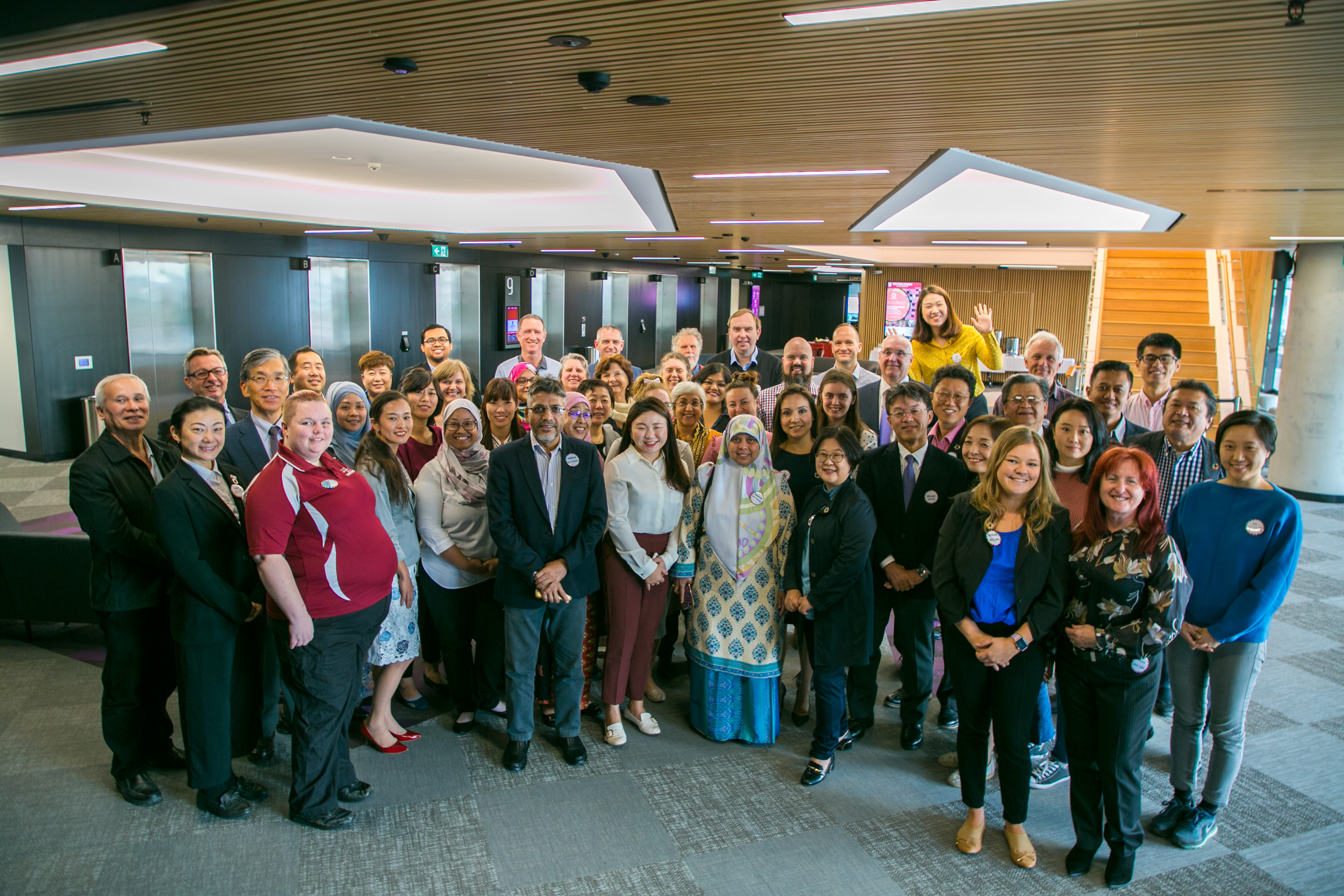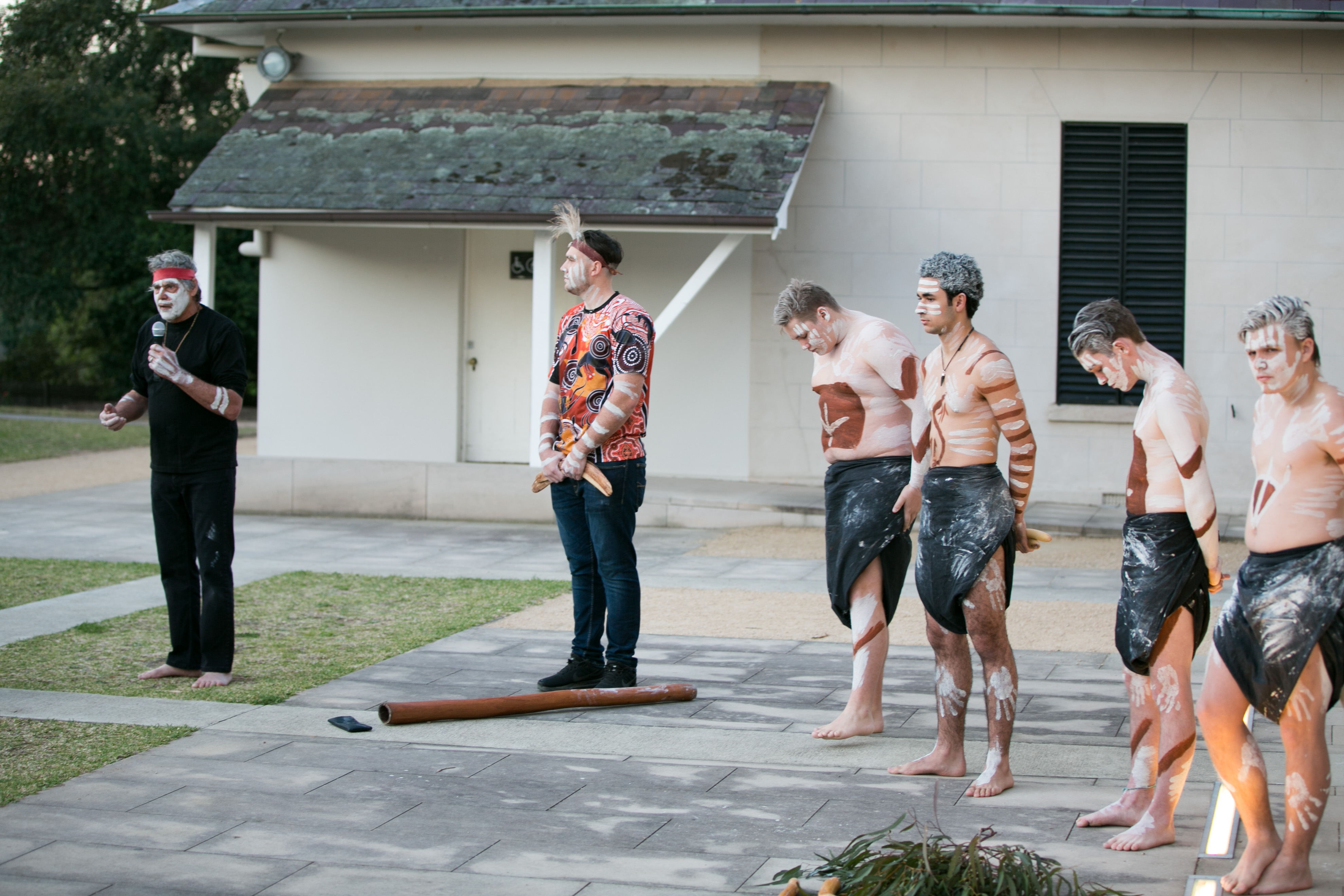Asia-Pacific RCEs Meet in Sydney to Explore Mainstreaming the Global Sustainable Development Agenda
 A total of 91 delegates from Regional Centres of Expertise on Education for Sustainable Development (RCEs) across Asia-Pacific gathered in the Greater Western Sydney region, one of the most multicultural locations in Australia, for the 11th Asia-Pacific RCE Meeting from 25-27 September, 2018 under the theme ‘Mainstreaming the Sustainable Development Goals (SDGs): Education and Impact’. Hosted by RCE Greater Western Sydney – which carries out a sustainability agenda covering sustainability practice and policy, business sustainability, biodiversity, health and wellbeing, and urbanisation – the meeting aimed to strengthen inter-RCE collaboration and showcase successful cases in Education for Sustainable Development (ESD) in relation to mainstreaming the SDGs for education and impact. Participants in attendance included 10 participants from developing countries such as India, Philippines, Indonesia, and Malaysia, as well as 43 women from across the region. Other participants came from the Republic of Korea, Japan, China, and New Zealand.
A total of 91 delegates from Regional Centres of Expertise on Education for Sustainable Development (RCEs) across Asia-Pacific gathered in the Greater Western Sydney region, one of the most multicultural locations in Australia, for the 11th Asia-Pacific RCE Meeting from 25-27 September, 2018 under the theme ‘Mainstreaming the Sustainable Development Goals (SDGs): Education and Impact’. Hosted by RCE Greater Western Sydney – which carries out a sustainability agenda covering sustainability practice and policy, business sustainability, biodiversity, health and wellbeing, and urbanisation – the meeting aimed to strengthen inter-RCE collaboration and showcase successful cases in Education for Sustainable Development (ESD) in relation to mainstreaming the SDGs for education and impact. Participants in attendance included 10 participants from developing countries such as India, Philippines, Indonesia, and Malaysia, as well as 43 women from across the region. Other participants came from the Republic of Korea, Japan, China, and New Zealand.
In collaboration with the Ministry of the Environment of Japan (MOEJ), UNU-IAS and UNESCO representatives, RCE Greater Western Sydney opened the discussion on the future of ESD mainstreaming in the 2030 Agenda in education and impact, the overall objective of this year’s meeting.
Participants were briefed on the GAP assessment and the need to refocus on SDGs as the overall framework for ESD for future interventions. Attendees also participated actively in the discussion by presenting successful cases on SDG implementation at the local level, with the presentations across sessions demonstrating that RCEs are working towards the implementation of all SDGs. Furthermore, initiatives on sustainable lifestyles, community empowerment and capacity-building, curriculum transformation, governance for SDGs and policy-making, water, climate change, agriculture, transportation, infrastructure, global citizenship, and youth and student mobilisation are being interlinked with the SDGs at the regional level. There is a general consensus amongst participants that the diversity of these initiatives requires greater collaboration. In response to this, a coordinating Committee has been established to provide strategic directions to strengthen governance across RCEs to better coordinate ESD learning and capacity-building and provide a discussion platform to coordinate collaborative initiatives of RCEs in the Asia-Pacific region.
Breakout group discussions were conducted on the first day across a range of areas. The discussion on ‘Community’ called for a multidisciplinary approach to ESD, the identification of priority areas, and for the development of community-based indicators. The session on ‘Schools and Youth’ provided RCEs with the opportunity to report on their achievements in this area, with an open discussion on strategies and challenges to implement them including stronger multi-stakeholder engagement, fostering a top-down approach to ESD policy, and exchanging best practices. The session on ‘Higher Education’ centered on issues of localising the SDGs and how the global agenda can be translated into local actions whilst also developing the curricula. Involving university leadership and mobilising students were considered by participants as core areas for future ESD debates and interventions.
Participants also benefitted from workshops aimed to build their capacity across SDG 17 (Partnerships for the goals), SDG 14 (Life below water), and SDG 15 (Life on land). Targeting SDG 17, the workshop provided participants with insights on how to foster collaboration though effective partnerships. Led by the host RCE Greater Western Sydney, the workshop built participants’ capacity on various approaches to partnerships as well as strategies for collaboration, namely, cooperation, coordination, collaboration, and partnerships. The workshop closed with a networking session that allowed participants to connect and explore opportunities to partner and enhance collaboration opportunities.
A capacity-building initiative on biodiversity and ecosystem services was also conducted, targeting SDGs 14 and 15, with this initiative aiming to raise awareness among RCE stakeholders on the IPBES process, whilst further exploring potential collaborative RCE actions for IPBES. The RCEs shared self-reflections on what their actions have been on biodiversity and ecosystem services, the major stakeholders involved, the gaps and challenges, ecosystem assessments engaged with, and their experiences on local/national/international-related works.
 The conference closed with field visits led by RCE Greater Western Sydney in collaboration with the Sydney Olympic Park and Brewongle Environmental Education Centre. Participants were given the opportunity to explore the existing city hub consisting of education, business events and live and work facilities aimed to showcase one of the most multicultural regions in the City of Sydney. Participants also joined a field trip at the Climate and Culture Hawkesbury Institute for the Environment and the Brewongle Environmental Education Centre. These two educational visits allowed participants to explore further opportunities for collaboration.
The conference closed with field visits led by RCE Greater Western Sydney in collaboration with the Sydney Olympic Park and Brewongle Environmental Education Centre. Participants were given the opportunity to explore the existing city hub consisting of education, business events and live and work facilities aimed to showcase one of the most multicultural regions in the City of Sydney. Participants also joined a field trip at the Climate and Culture Hawkesbury Institute for the Environment and the Brewongle Environmental Education Centre. These two educational visits allowed participants to explore further opportunities for collaboration.
Overall, the conference showed there is a general agreement amongst participant RCEs in Asia-Pacific that higher education institutions should engage in syllabus development, research, and policy to further explore the implementation of SDGs in an impactful way. RCEs are working towards the achievement of the global goals in practice, yet there is room for improvement. Conclusions drawn from the conference showed that further collaboration across RCEs and stronger governance mechanisms for the successful completion of projects with a focus on local communities are needed.
The Global RCE Service Centre wishes to thank the team at RCE Greater Western Sydney for their wonderful support and efforts in making this event a success.
Outcomes from the meeting can be found here. Photos from the meeting have also been uploaded on Facebook here.
Photos taken by Josh Newman (Vinewood Studios) (top left and bottom left) and UNU-IAS (right).


